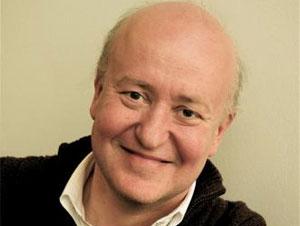Asperger’s syndrome and a Pulitzer Prize-winning music critic
The following is a partial transcript; for full story, listen to audio.
In the past ten years, we have become familiar with what has been called "the spectrum," or the range of disorders that include autism and Asperger's syndrome. They can be terrible disabilities, but not for Tim Page. In fact, he thinks that Asperger's has been one of the keys to his brilliant career.
Page was not diagnosed with the syndrome until well into adulthood. He'd already been a music critic for the "New York Times," "The Washington Post," and a great author. In fact, he was awarded a Pulitzer Prize. He tells his story in a new memoir called "Parallel Play."
Page describes the day that a name was finally placed on his condition, when he and his ten-year-old son went to a therapist:
"Basically, the doctor said that he has this condition called Asperger's syndrome, and the doctor said, 'And you have it, too.' I was really startled by this, but we had spent a lot of time with this guy. He knew me in some of the same way. I did go out and get my own diagnosis, and I bought a lot of literature about it, at the time.
"It was weird because there was one essay in one of the books which mentioned old records, old films, and true crime, as things as 'Aspy kids,' as we call ourselves, might be interested in. I was thinking, 'Oh my god, did they invent this disorder just for me?' This was my fascination when I was a kid."
In the book, Page writes that he is drawn to certain kinds of music, but not for the reasons that people usually list.
"What I loved in (Maurice Ravel's) 'Bolero' later on in life, and in some of the minimalist composers, was the sense that I was actually watching life change, that I was somehow caught up in it as it changed. I was as interested in the process more than I was interested in where it was necessarily going."
Page is able to trace the path between what he now knows as Asperger's and music criticism.
"The music somehow evoked a world in which I felt at home, as opposed to the real world, which I did not feel at home in … I had things that I could get obsessive about, or at least close enough to normal life that I managed to be okay with them."
Bonus: Listen to this Tim Page interview with Glenn Gould, from WNYC's "New, Old, and Unexpected," August 1982.
PRI's Peabody Award-winning "Studio 360 with Kurt Andersen" from WNYC is public radio's smart and surprising guide to what's happening in pop culture and the arts. Each week, Kurt Andersen introduces you to the people who are creating and shaping our culture. Life is busy — so let "Studio 360" steer you to the must-see movie this weekend, the next book for your nightstand, or the song that will change your life.
